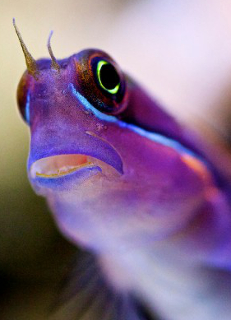Reef keeps diving in five-year review
 Two updated reports this week show the Great Barrier Reef is still deteriorating.
Two updated reports this week show the Great Barrier Reef is still deteriorating.
Papers looking at the health and management of the Reef reveal parts of the World Heritage site are under pressure from human developments, and that the central and southern areas are continuing to degrade.
Federal Environment Minister Greg Hunt has released a new strategic assessment for the Reef.
It came just days after an outlook report by the Great Barrier Reef Marine Park Authority (GBRMPA), which did not find much good news on health of the reef over the last five years.
“Even with the recent management initiatives to reduce threats and improve resilience, the overall outlook for the Great Barrier Reef is poor and getting worse,” GBRMPA chairman Russell Reichelt wrote.
The levels of some pollutants entering the reef were found to have dropped since 2009, but the greatest risks remain.
These include negative impacts of climate change, potentially toxic farm run-off, erosion and degradation from coastal developments and the ecological damage caused by fishing.
Nature has taken a swing at the Reef too, with major storms and floods affecting the already strained system.
When all of these impacts are tallied together, the potential for ongoing Reef weakening is clear.
“The Great Barrier Reef is an icon under pressure,” the GBRMPA report says.
“Without promptly reducing threats, there is a serious risk that resilience will not be improved and there will be irreversible declines in the region’s values.”
“This is likely to affect its ability to recover from series disturbances, such as major coral bleaching events, which are predicted to become more frequent.”
The northern third of the Reef region was found to have good water quality and a relatively stable ecosystem.
But researcher showed the habitat, species, and ecosystem right across the central and southern inshore areas continues to be deteriorated by human use and natural disasters.
The struggling dugong population has declined further as well.
A few species were found to be rebounding after years of decline, with numbers of humpback whales, estuarine crocodile and loggerhead turtles all rising.
The United Nations’ World Heritage Committee maintains its concern that the Abbot Point port expansion will dump of three million cubic metres of dredge spoil within the marine park.
It has earlier flagged its intention to review the listing of the reef on the World Heritage register in regard to the potential new destruction.
Federal Environment Minister Greg Hunt has said he is confident the Government will be able to save the reef from being listed as “in danger”, by reducing some port developments.
The World Wildlife Foundation has questioned why the Reef should not see a similar level of funding for water quality and ecological maintenance that the Murray River system gets.








 Print
Print